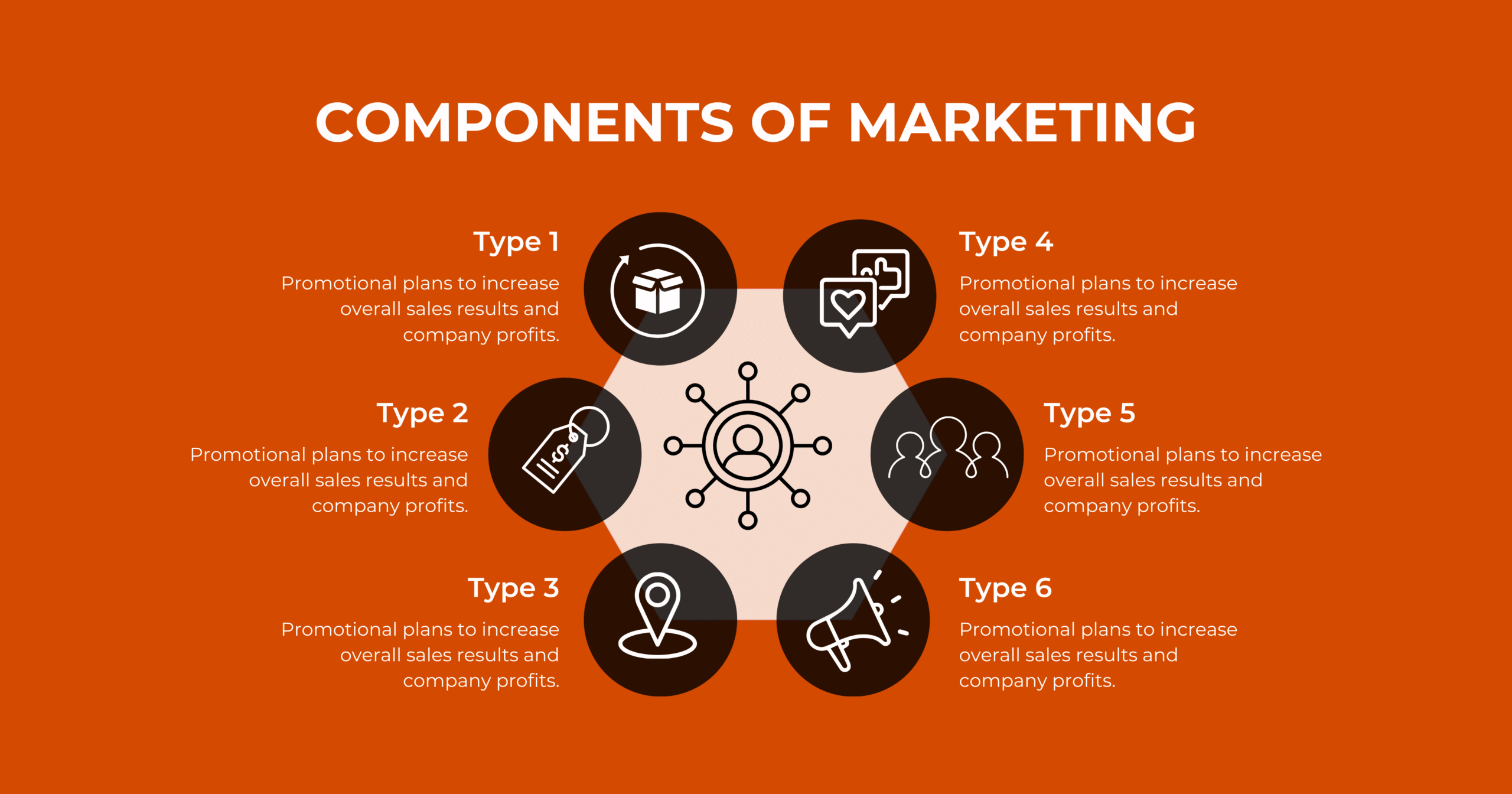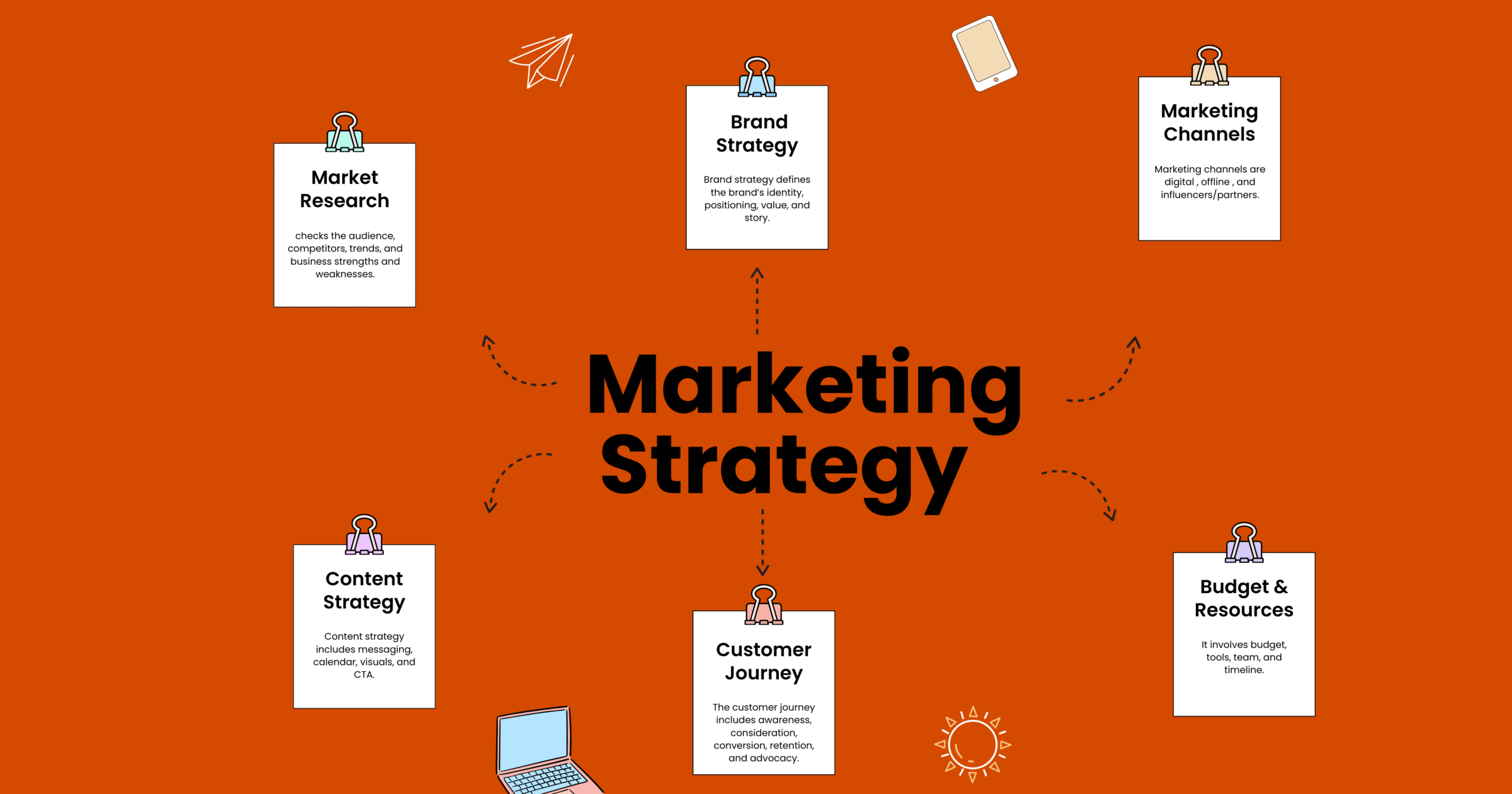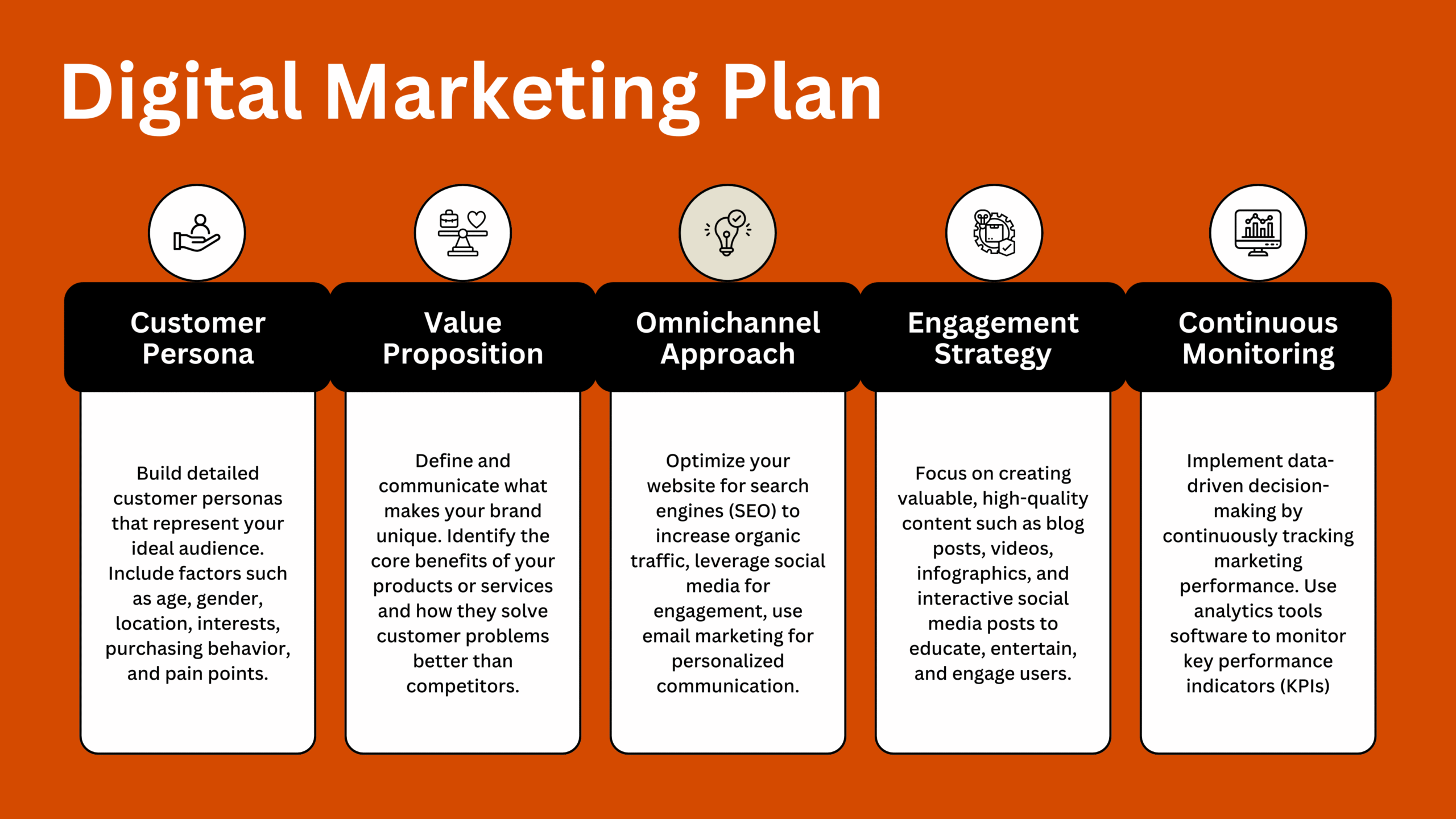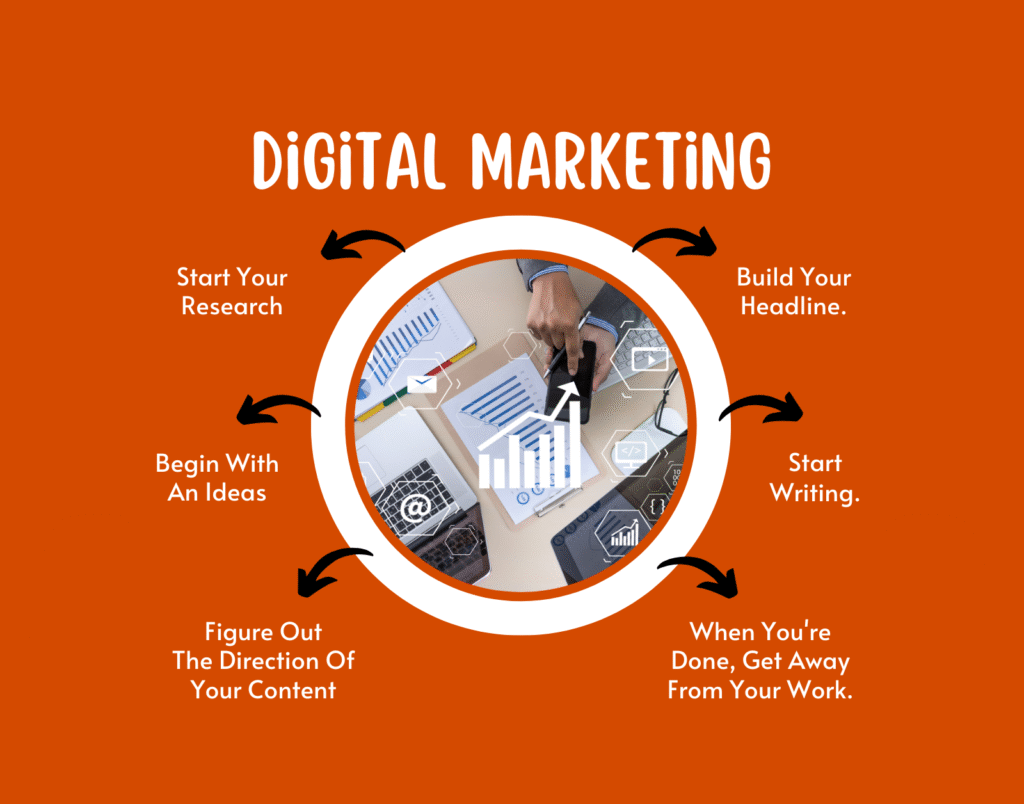Introduction
In today’s interconnected world, businesses cannot afford to ignore the digital landscape. With over 5.16 billion internet users worldwide as of 2024, representing 64.4% of the global population, the digital realm has become the primary battleground for customer attention and engagement. Digital marketing has emerged as the cornerstone of modern business success, fundamentally transforming how companies connect with their audiences, build brand awareness, and drive revenue.
The numbers speak volumes about this digital revolution: global digital advertising spending reached $701.20 billion in 2023, with projections indicating it will surpass $870 billion by 2027. Meanwhile, businesses that prioritize digital marketing are 2.8 times more likely to increase their revenue compared to those that don’t. Perhaps most telling is that 93% of online experiences begin with a search engine, highlighting the critical importance of having a strong digital presence.
This comprehensive guide will walk you through everything you need to know about digital marketing, from its basic concepts to advanced strategies that can propel your business toward online success. Whether you’re a small business owner taking your first steps into the digital world or an established company looking to optimize your online presence, the data-driven insights and proven strategies outlined here will help you navigate the complex but rewarding landscape of digital marketing.
Understanding Digital Marketing
Digital marketing encompasses all marketing efforts that use electronic devices and the internet to connect with current and prospective customers. Unlike traditional marketing methods such as print advertisements, billboards, or television commercials, digital marketing leverages digital channels, platforms, and technologies to reach audiences where they spend most of their time: online.
The evolution of consumer behavior has made digital marketing not just an option but a necessity. People now research products online before making purchases, seek recommendations through social media, and expect brands to have a strong digital presence. This shift has created unprecedented opportunities for businesses of all sizes to compete on a level playing field and reach global audiences with targeted, measurable campaigns.
At its core, digital marketing is about creating meaningful connections between brands and consumers through various digital touchpoints. It involves understanding your audience’s online behavior, preferences, and pain points, then crafting strategic campaigns that resonate with them across multiple digital channels. This approach allows for real-time interaction, immediate feedback, and continuous optimization based on data-driven insights.
Essential Components of Digital Marketing
Search Engine Optimization (SEO)
Search Engine Optimization forms the backbone of any successful digital marketing strategy. SEO involves optimizing your website and content to rank higher in search engine results pages, making it easier for potential customers to find your business organically. This process includes keyword research, on-page optimization, technical improvements, and building high-quality backlinks from reputable sources.
Effective SEO requires a deep understanding of how search engines work and what factors influence rankings. Content quality, website speed, mobile responsiveness, and user experience all play crucial roles in determining your search visibility. By implementing proper SEO techniques, businesses can attract qualified traffic without paying for each click, making it one of the most cost-effective marketing channels available.
Content Marketing
Content marketing focuses on creating and distributing valuable, relevant, and consistent content to attract and retain a clearly defined audience. This strategy goes beyond traditional advertising by providing genuine value to consumers through educational articles, entertaining videos, informative infographics, and engaging social media posts.
The power of content marketing lies in its ability to build trust and establish authority in your industry. When you consistently provide helpful information that addresses your audience’s questions and concerns, you position your brand as a reliable resource. This approach naturally leads to increased brand awareness, customer loyalty, and ultimately, business growth.
Social Media Marketing
Social media platforms have become integral to how people communicate, share information, and discover new products and services. Social media marketing involves creating and sharing content on platforms like Facebook, Instagram, Twitter, LinkedIn, and TikTok to achieve marketing and branding goals.
Successful social media marketing requires understanding each platform’s unique characteristics and audience preferences. What works on LinkedIn might not be appropriate for Instagram, and content that performs well on TikTok may not resonate with Facebook users. The key is developing platform-specific strategies while maintaining consistent brand messaging across all channels.
Pay-Per-Click Advertising (PPC)
Pay-Per-Click advertising allows businesses to display ads on search engines and other platforms, paying only when users click on their advertisements. Google Ads is the most popular PPC platform, enabling businesses to appear at the top of search results for specific keywords related to their products or services.
PPC campaigns offer immediate visibility and can be highly targeted based on demographics, location, interests, and search behavior. This precision targeting, combined with detailed analytics, makes PPC an excellent channel for generating qualified leads and driving conversions quickly.
Email Marketing
Despite the rise of new digital channels, email marketing remains one of the most effective ways to nurture relationships with customers and prospects. With an impressive return on investment of $36 for every $1 spent, email marketing consistently outperforms other digital marketing channels. Currently, there are over 4.3 billion email users worldwide, representing a massive potential audience for businesses.
Email campaigns can be highly personalized, automated, and measured, making them incredibly valuable for maintaining ongoing communication with your audience. Research shows that personalized email campaigns generate 58% of all revenue for businesses, while segmented campaigns see a 760% increase in revenue compared to non-segmented ones.
Modern email marketing goes far beyond simple newsletters. Advanced segmentation, behavioral triggers, and personalization techniques allow businesses to send relevant messages at the optimal time, significantly improving engagement rates and conversion potential.

Professional Expertise in Digital Marketing
While many digital marketing tactics can be learned and implemented by business owners, the complexity and constantly evolving nature of the digital landscape often requires professional expertise. A digital marketing agency brings specialized knowledge, advanced tools, and proven strategies that can accelerate your online success.
Professional digital marketing services typically include comprehensive strategy development, campaign execution, performance monitoring, and continuous optimization. These experts stay current with industry trends, algorithm changes, and best practices, ensuring your marketing efforts remain effective and competitive.
When searching for digital marketing near me, it’s important to evaluate potential partners based on their track record, industry experience, and ability to understand your unique business goals. The best marketing agencies combine technical expertise with creative thinking, delivering campaigns that not only drive traffic but also generate meaningful business results.
Online Marketing Business Foundation
Creating a successful online marketing business requires more than just implementing various digital tactics. It demands a strategic approach that aligns with your overall business objectives and target audience needs. The foundation begins with developing a comprehensive digital marketing website that serves as the central hub for all your online activities.
Your website should be designed with both users and search engines in mind, featuring clear navigation, compelling content, and optimized performance across all devices. This digital storefront often serves as the first impression potential customers have of your business, making its design and functionality critical to your success.
Beyond the website, establishing a strong brand presence across relevant digital channels creates multiple touchpoints for customer interaction. This omnichannel approach ensures that regardless of where your audience encounters your brand, they receive a consistent and compelling message that reinforces your value proposition.
Advanced Digital Marketing Strategies
Marketing automation technology enables businesses to streamline, automate, and measure marketing tasks and workflows. This approach increases operational efficiency and grows revenue faster by nurturing leads through personalized, timely communications based on their behavior and preferences.
Effective automation sequences can guide prospects through the customer journey, from initial awareness to final purchase decision. By delivering the right message at the right time, businesses can significantly improve conversion rates while reducing manual effort and costs.
Data Analytics and Performance
The digital marketing advantage lies in its measurability. Every click, view, share, and conversion can be tracked and analyzed, providing valuable insights into campaign performance and customer behavior. This data-driven approach enables continuous optimization and ensures marketing budgets are invested in the most effective channels and tactics.
Key performance indicators (KPIs) vary depending on your specific goals but often include website traffic, conversion rates, cost per acquisition, customer lifetime value, and return on investment. Regular analysis of these metrics helps identify trends, opportunities, and areas for improvement.
Conversion Rate Optimization (CRO)
Conversion Rate Optimization focuses on increasing the percentage of website visitors who complete desired actions, such as making a purchase, filling out a form, or subscribing to a newsletter. This process involves analyzing user behavior, testing different elements, and implementing changes that improve the user experience and encourage conversions.
CRO is particularly valuable because it maximizes the return on your existing traffic without requiring additional marketing spend. Small improvements in conversion rates can have significant impacts on revenue and business growth.

Industry Trends and Future Considerations
The digital marketing landscape continues to evolve rapidly, driven by technological advancements, changing consumer behaviors, and new platform features. Artificial intelligence and machine learning are increasingly being integrated into marketing tools, enabling more sophisticated targeting, personalization, and automation capabilities.
Voice search optimization is becoming increasingly important as more consumers use smart speakers and voice assistants to find information and make purchases. Mobile-first design is no longer optional, as the majority of internet traffic now comes from mobile devices.
Privacy regulations and changes to data collection practices are reshaping how marketers collect and use customer information. Successful digital marketers must adapt their strategies to comply with these regulations while still delivering personalized experiences that customers expect.
Working with Top Digital Marketing Companies
When evaluating top digital marketing companies, look for partners who demonstrate a clear understanding of your industry, target audience, and business objectives. The best digital marketer for your business will combine technical expertise with strategic thinking, providing recommendations based on data rather than assumptions.
Successful partnerships are built on transparent communication, regular reporting, and a commitment to continuous improvement. Your chosen digital marketing professional should be able to explain their strategies in clear terms, provide regular updates on campaign performance, and adapt tactics based on results and changing market conditions.
Measuring Success and ROI
Digital marketing success should be measured against specific, measurable objectives that align with your business goals. Whether you’re focused on increasing brand awareness, generating leads, or driving sales, establishing clear metrics and tracking mechanisms is essential for evaluating campaign effectiveness.
Return on Investment (ROI) calculation in digital marketing involves comparing the revenue generated from marketing activities against the costs invested. This analysis helps determine which channels and tactics provide the best returns, enabling more informed budget allocation decisions.
Regular performance reviews and optimization ensure that your digital marketing efforts continue to evolve and improve over time. The iterative nature of digital marketing allows for rapid testing and refinement, leading to increasingly effective campaigns and better business results.

Digital Marketing Action Plan
Beginning your digital marketing journey can feel overwhelming, but breaking it down into manageable steps makes the process more approachable. Start by clearly defining your target audience, understanding their online behavior, and identifying the digital channels where they’re most active.
Develop a content strategy that addresses your audience’s needs and interests while showcasing your expertise and unique value proposition. Create a consistent publishing schedule across your chosen channels, focusing on quality over quantity to build credibility and engagement.
Implement tracking and analytics tools from the beginning to measure your progress and identify what’s working. This data will inform future decisions and help you allocate resources more effectively as your digital marketing efforts mature.
Consider partnering with experienced professionals or agencies when your internal resources are limited or when you need specialized expertise. The right partnership can accelerate your learning curve and help you avoid common mistakes that could waste time and budget
Internet Marketing vs Traditional Marketing
The fundamental difference between internet marketing and traditional marketing lies in the level of interaction, targeting precision, and measurability. While traditional marketing often involves one-way communication through channels like television, radio, or print media, internet marketing enables two-way conversations and real-time engagement with your audience.
Internet marketing also offers superior targeting capabilities, allowing businesses to reach specific demographics, interests, and behaviors with remarkable precision. This targeting efficiency typically results in better conversion rates and more cost-effective campaigns compared to traditional mass marketing approaches.
The measurability of internet marketing provides unprecedented insights into campaign performance, customer behavior, and return on investment. This data-driven approach enables continuous optimization and ensures marketing efforts are focused on the most effective strategies and channels.
Digital Advertising
Digital advertising encompasses various paid promotional activities across online platforms, including search engines, social media networks, websites, and mobile applications. This approach provides immediate visibility and can be precisely targeted to reach specific audiences based on demographics, interests, behavior, and geographic location.
The flexibility of digital advertising allows for real-time adjustments based on performance data. Campaigns can be paused, modified, or scaled up quickly in response to results, making it possible to optimize spending and maximize returns throughout the campaign duration.
Different digital advertising formats serve various objectives, from brand awareness and lead generation to direct sales and customer retention. Understanding which formats align with your goals and audience preferences is crucial for campaign success.
Web Marketing
Web marketing extends beyond individual tactics to encompass the entire online experience your brand provides. This holistic approach ensures that all digital touchpoints work together to guide visitors through a seamless journey from initial awareness to becoming loyal customers.
Effective web marketing requires careful attention to user experience design, ensuring that every interaction reinforces your brand message and moves visitors closer to conversion. This includes website navigation, content organization, visual design, and technical performance optimization.
Integration between different marketing channels creates a more powerful overall impact than isolated tactics. When your SEO efforts, content marketing, social media presence, and paid advertising work in harmony, the cumulative effect significantly amplifies your marketing effectiveness.
Conclusion
Digital marketing represents an unprecedented opportunity for businesses to connect with their audiences, build meaningful relationships, and drive sustainable growth. The key to success lies in understanding your audience, choosing the right mix of tactics, and continuously optimizing based on performance data.
Whether you’re just starting your digital marketing journey or looking to enhance existing efforts, the strategies and principles outlined in this guide provide a solid foundation for online success. Remember that digital marketing is not a one-time effort but an ongoing process that requires attention, adaptation, and continuous learning.
The digital landscape will continue to evolve, bringing new opportunities and challenges. By staying informed about industry trends, maintaining a customer-focused approach, and being willing to adapt your strategies based on results, you’ll be well-positioned to thrive in the dynamic world of digital marketing.
Success in digital marketing comes to those who combine strategic thinking with tactical execution, always keeping their audience’s needs and preferences at the center of their efforts. Start with clear objectives, implement proven strategies, measure your results, and don’t be afraid to adjust your approach based on what you learn along the way.


